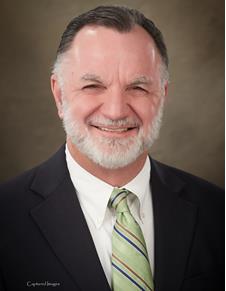
If you have read my column very often, you probably have noticed how hard I am on the role of government in managing our economy. I believe that governments serve a legitimate role in the business cycle, but too often their actions destroy the incentive for capital investment and productivity.
A case in point is the 10% luxury tax that Congress placed on toys for the rich, such as yachts, furs, jewelry, planes, etc., during the 1990s. The intention seemed noble: get the rich to pay a little extra for their toys in order to benefit the poor. The result? The rich quit buying American toys or bought used toys and fixed them up. Many workers lost their jobs as these luxury toy manufacturers downsized or went out of business altogether. The yacht tax only brought in about $13 million over 18 months, which was enough to keep the Department of Agriculture running for about 2 hours.
Additionally, the government seems to believe that the intellectuals in their ranks know how to run businesses. They don’t. State control is fundamentally bad because it denies people the power to choose and the opportunity to bear responsibility for their own actions. The incentive for excellence is diminished. When one has real capital investment in an enterprise, the focus becomes efficient cost structures, product/service innovation, and the hard work required to make a profit.
Further, without capital investment in new equipment and software, the incentive for innovation is stymied. Without innovation, productivity stagnates and economic competitiveness declines.
The growth rate of American capital investment has been on the decline since 1999. During the decade of the 1990s, capital investment grew annually by 5.2%, on average; during the first decade of this century, the number was a paltry 0.5% per year. The result was a decline in innovation and productivity as measured by our annual Gross Domestic Product numbers.
What has this to do with Bourbon County? Rural America has suffered disproportionately from these trends. The consolidation that has occurred in many industries has closed rural businesses, resulting in population decline, lost property values, and substantial increases in real estate taxes to offset the lost values.
What do we do about this negative trend? We have to look for creative ways to attract capital investment and to push for a limited role of government in our markets. The free market, in which the incentives are in the right place, will always create more productivity, innovation and profit than a heavily regulated/taxed/controlled economy. To quote former United Kingdom Prime Minister Margaret Thatcher, when speaking to the rapid rise of the British economy during the 1980s: “…we understood that a system of free enterprise has a universal truth at its heart: to create a genuine market in a state you have to take the state out of the market.” Let’s keep the incentives in the right place in Bourbon County and look for ways to attract capital investment.
Another good article. Reminded me of this quote:
Most of economics can be summarized in four words: “People respond to incentives.” The rest is commentary.
Steven E. Landsburg
Spot on as usual, Rick!
I am currently writing a final paper for an MPA program I am in through Wichita State University. I am distressed to see the state that Fort Scott has put itself in. From my research into what incentives are available for businesses, the tax rates here in our city and county, and the continual population decrease, I worry for Fort Scott. Personally, I would not open a business at all in Bourbon County because the taxes are extraordinarily high. Fort Scott has one of the highest sales tax rates in the entire State. It’s no wonder people are leaving our community. We need to offer far better incentives for businesses, but add stipulations such as tax rebates based on how many Fort Scott or Bourbon County citizens they hire for full-time positions.
MPA, your comments are on point. There is hope; we can address many of the issues that have created problems for us. I hope you come back some day and contribute to the solution.